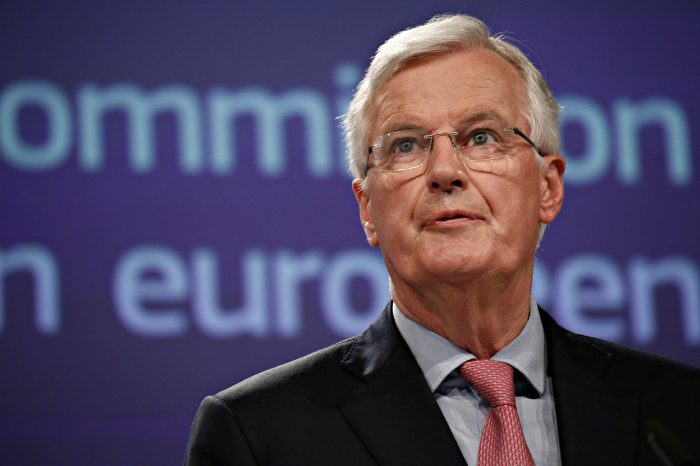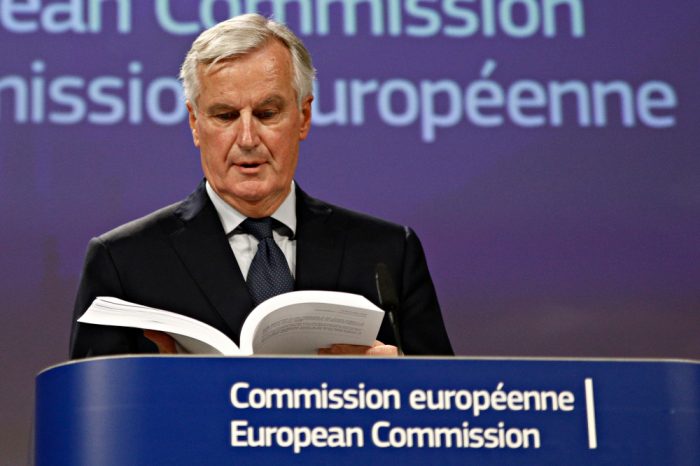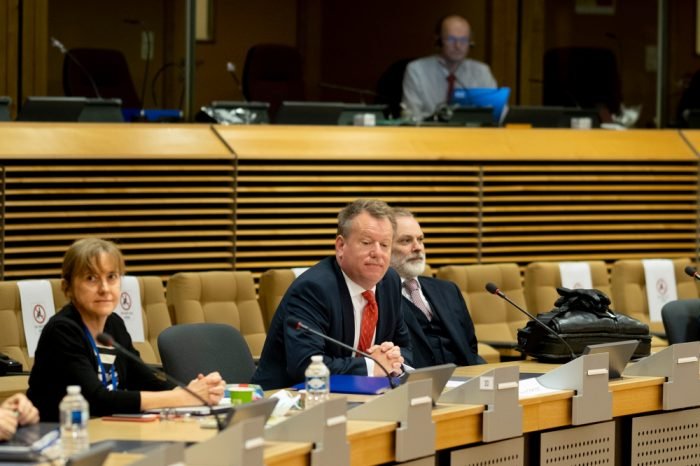Clash of cultures – the root of our Brexit difficulties
Can the conflicting opinions on the EU’s intentions in the Brexit negotiations be reconciled? In my hearing, a staunch Brexit supporter recently referred to Michel Barnier as a “reasonable man” whereas I have read numerous comments from people convinced that the EU wants to punish us and will deliberately be as unreasonable as possible. Who is correct?
It cannot be denied that Brits and Continentals do seem to have a different mindset when it comes to negotiations. Our attention was recently drawn to an interesting article on this subject on the Conservative Home website by James Arnell, a lawyer with some experience of negotiating with people from European countries. He claimed that such people begin with unreasonable demands and only at the last minute does a deal emerge.
Fair enough, but this does not get to the heart of the conundrum. The fundamental problem is that many of us don’t understand the difference in culture between our country and the majority of the other member states.
It goes back centuries, possibly longer. Essentially, our Common Law legal system bequeathed to us a love of liberty and flexibility. We don’t like everything to be rigidly codified and prefer laws to which we can adhere to in spirit rather than obeying to the letter. Such a mindset is as inevitable outworking of Common Law with its insistence on equality and inalienable rights.
Across the water, the two most influential figures in the development of law were the Byzantine emperor Justinian (d.565) and Napoleon. Their legal systems, which form the basis of most of the law codes in Europe, were very top-down. Freedoms were conditional and the concept of everyone being equal before the law was unknown.
The EU’s approach to lawmaking is very much in that tradition and like all such systems, tends to be very exact and very bureaucratic. It will legislate in great detail in areas where an independent UK would not have been so precise or perhaps, not bothered at all. We may have laughed at the cuddly toy sheep depicted in Regulation 1462/2006, but it graphically illustrates the difference in approach which has been one of the biggest problems facing our politicians and civil servants since 1973 and which lies at the root of the lack of progress with the Brexit talks.
Very few UK politicians have appreciated the difference in mindset between ourselves and the rest of the EU – even those who have supported our membership. On one occasion, Sir John Major was taken to one side by Helmut Kohl, the former German Chancellor, and told to go home and read the treaties as he clearly had never done so.
This mindset manifests itself in various other ways, some mildly amusing, others frustrating. The Civil Service did not always find it easy to convert EU directives into UK law and often ended up “gold-plating” – in other words, interpreting them in an excessively strict manner. A German motorist was once apprehended by the police for driving his Porsche at well over 100mph on a UK motorway. His excuse was that the 70mph limit did not seem to apply as so many other cars were going faster. In other words, he could not get his head round the concept of obeying the spirit but not the letter of the law – a guideline rather than something always enforced to the letter.
The different legal status of a UK policeman compared with a Continental Gendarme is another aspect of the same clash of mindsets. As Christopher Gill, one of the former “Maastricht Rebel” Conservative MPs explains,
“The tradition of British policing has been to protect individuals and their property from criminal activity and to apprehend those who transgress whereas on the continent police act almost like an army of occupation, responsible for public order enforcement, crowd control and generally buttressing the authority of the civil state as opposed to defending the freedom of the individual citizen”.
On a personal note, I can recall during my time working in Brussels how often colleagues used to moan about Belgian bureaucracy. The amount of form-filling required to register for residence or to let the authorities know that you worked for the EU and were thus covered by different tax arrangements was quite staggering. Yet it didn’t seem to bother the Belgians that their taxes were being used to pay the salaries of some public sector workers whose sole occupation seemed to be to stamp forms!
When we joined the EU, however, whether our politicians understood it or not – and most of them almost certainly didn’t – we agreed to play by their rules and in leaving the EU, it is exactly the same. Under Article 50, we have two options – to come to an agreement or leave without one. As M. Barnier has pointed out, it was our decision to leave. If, therefore, we want to leave by the EU’s approved route, our exit negotiations have to be conducted according to EU rules which limit the scope for flexibility. The EU in other words will not be flexible because it CANNOT be flexible in some areas where our ministers would like a bit of “give and take”.
For instance, Liam Fox’s claim that an EU-UK trade deal would be “the easiest in history” because we are beginning with zero tariffs and maximum regulatory convergence fails to take into account the simple fact that under EU rules, we become a “third country” on independence and the treaties cease to apply. Whatever the levels of convergence, in March 2019 our entire current relationship with the EU will be no more and any new trading arrangements will need to be put together on a totally different basis. The EU can’t bend the rules for us, whether it wants to or not.
This clash of cultures shows why it was right to vote to leave last year. It also explains why we are likely to prosper once we have left, even though when it comes to international trade, we will still be subject to any regulation originating with global bodies. David Davis’ “sunlit uplands” are therefore not a total fantasy, but we’ve got to get there first! We will only do so if our negotiating team fully get to grips with the nature of the organisation we are trying to leave. It may be boring, tedious stuff, but if we are to leave smoothly, there is an urgent need for Civil Servants and politicians alike to heed the advice which John Major never took – Go and read the treaties!
Photo by archer10 (Dennis) 100M Views 







